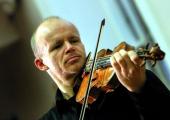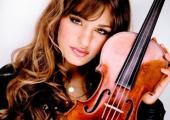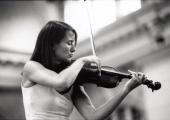Mozart Unwrapped, Aurora Orchestra, Collon, Kings Place

Bright young conductor steps into Sir Colin Davis's shoes with Mozartian aplomb
One reason among many to be jolly about the classical music scene recently has been the bright future of Mozart conducting. Its greatest exponent, Sir Charles Mackerras, left us halfway through last year, but then came two Don Giovannis of precocious assurance from Jakub Hrůša at Glyndebourne and Robin Ticciati in Scotland. Yesterday evening's needs-must situation deprived us of a visit from the Aurora Orchestra's honorary patron, Sir Colin Davis - whose infection, we were glad to hear, was nothing serious - but I, for one, wanted to hear how this dazzling young ensemble's principal conductor and artistic director Nicholas Collon would fare in his master's shoes.
One reason among many to be jolly about the classical music scene recently has been the bright future of Mozart conducting. Its greatest exponent, Sir Charles Mackerras, left us halfway through last year, but then came two Don Giovannis of precocious assurance from Jakub Hrůša at Glyndebourne and Robin Ticciati in Scotland. Yesterday evening's needs-must situation deprived us of a visit from the Aurora Orchestra's honorary patron, Sir Colin Davis - whose infection, we were glad to hear, was nothing serious - but I, for one, wanted to hear how this dazzling young ensemble's principal conductor and artistic director Nicholas Collon would fare in his master's shoes.








